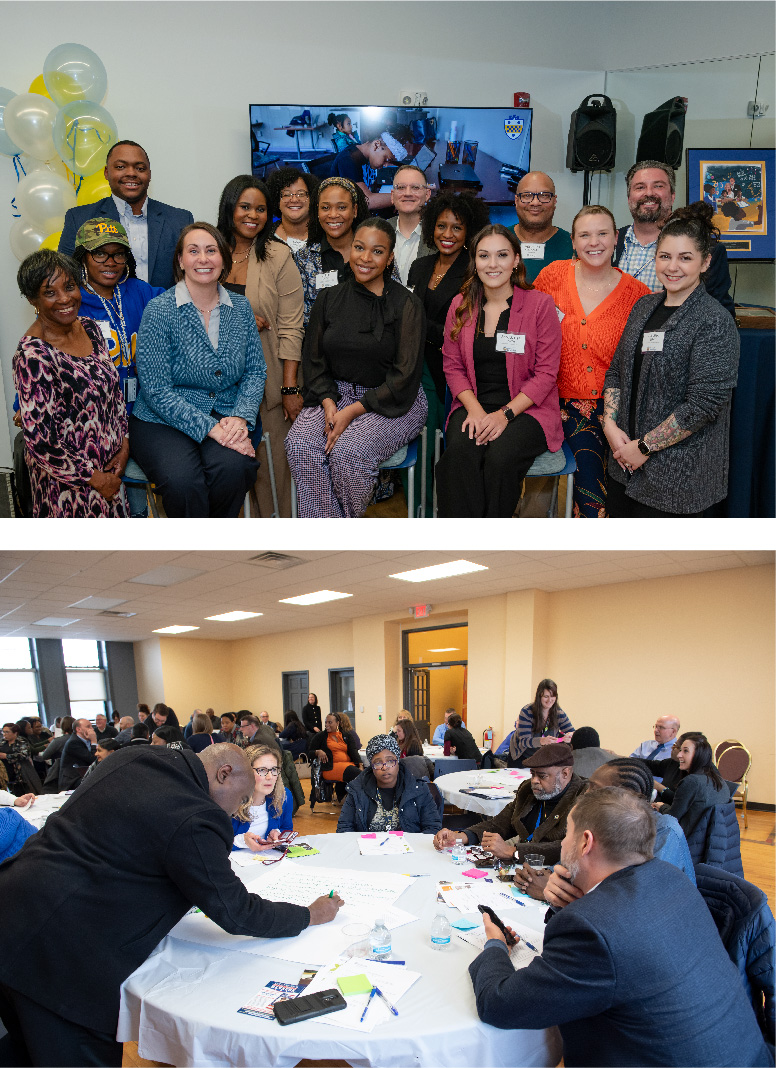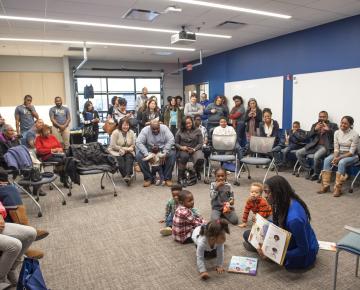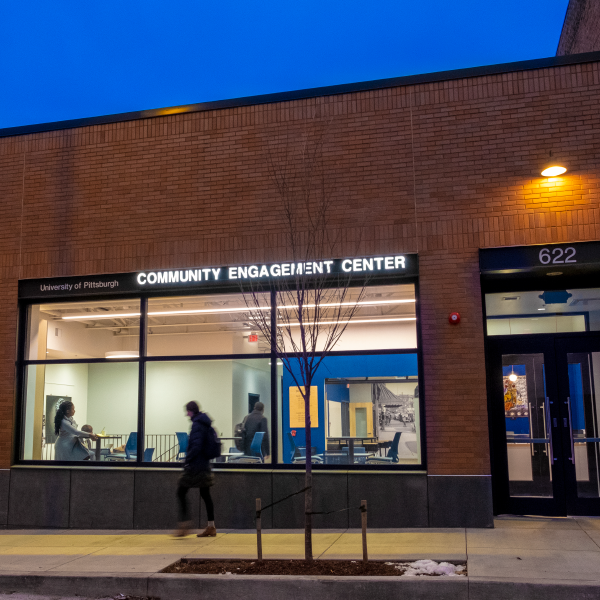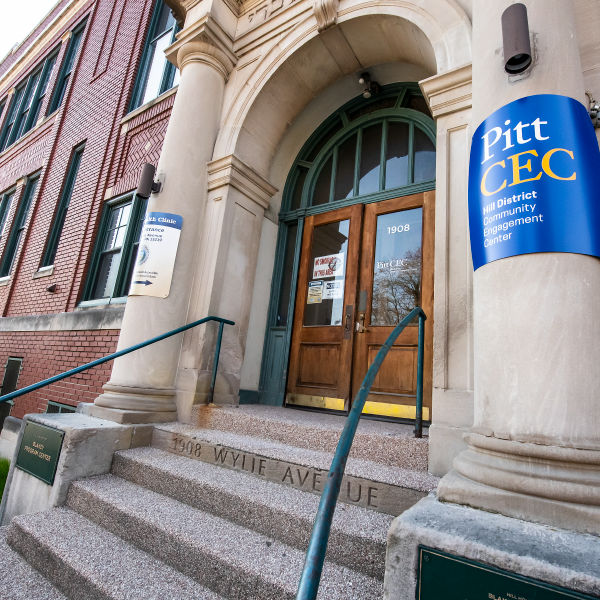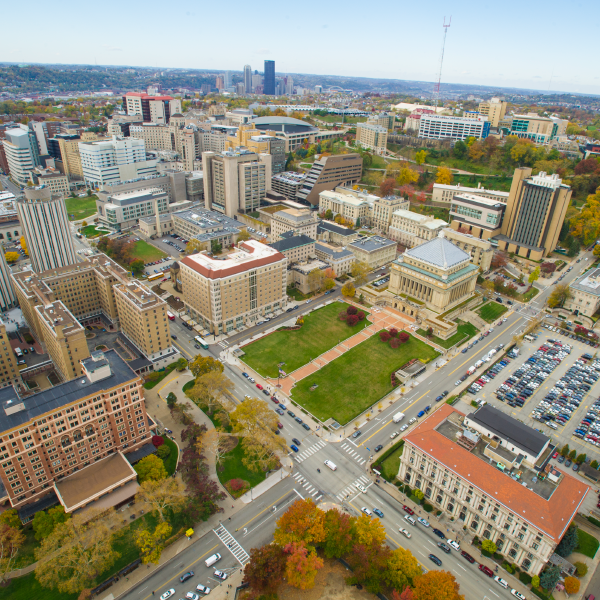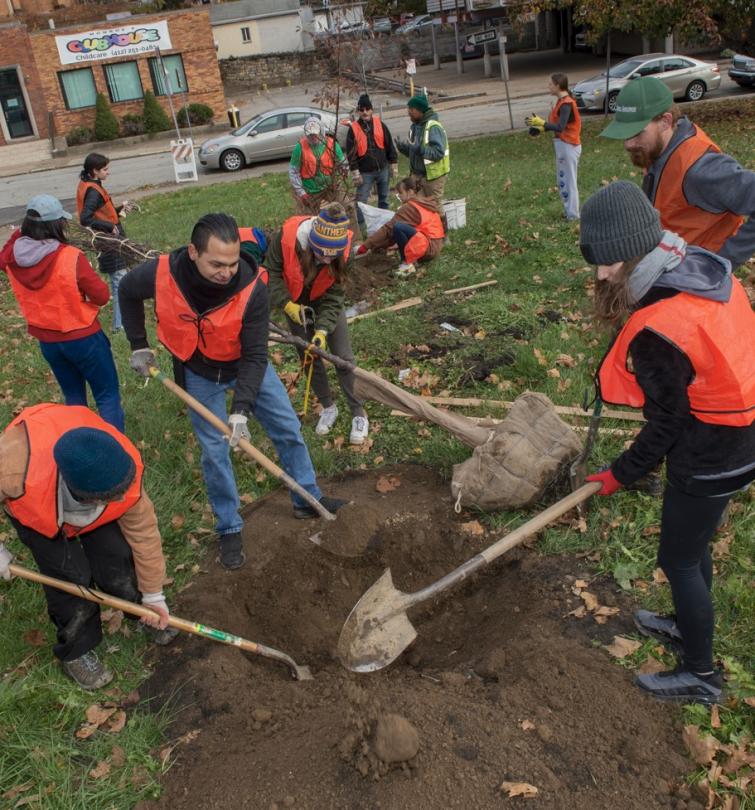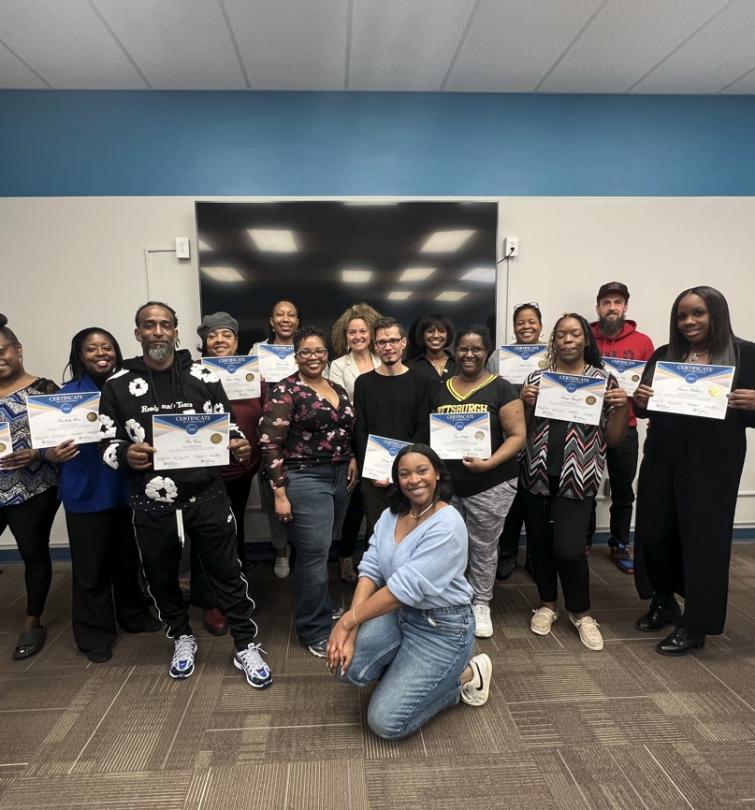Community Engagement Centers:
A front door to Pitt grounded in the heart of the community
Community Engagement Centers (CECs) are vibrant, welcoming spaces that create a front door to Pitt right in the heart of the community. Led by center directors, CECs foster collaboration and house services and programs offered by Pitt faculty, staff, and students.
CECs make Pitt’s neighborhood commitments visible and bring Pitt into the neighborhood. At CECs, community members can access resources and services they need, community organizations can partner with Pitt programs to strengthen their efforts, and Pitt faculty and students can work and learn with the community.

